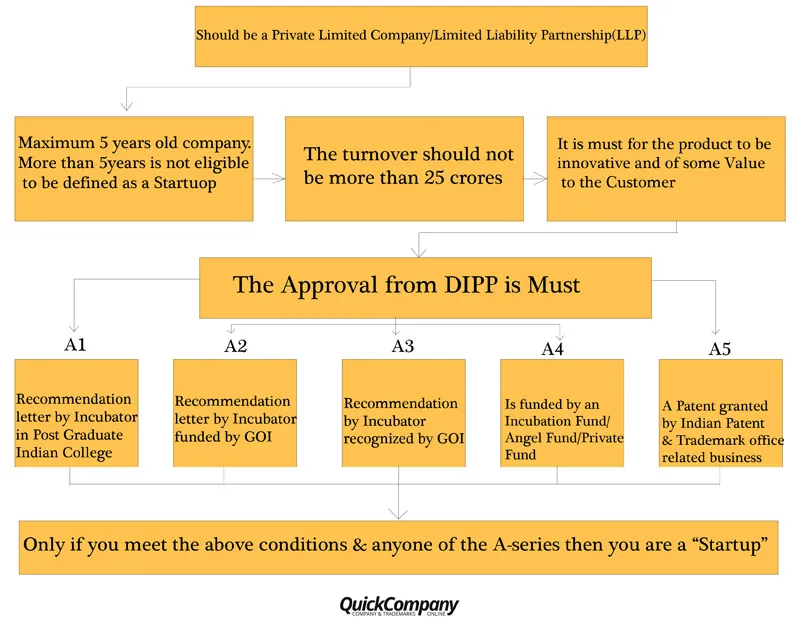Leading misconceptions about startup revolution
Everybody wants to fly, but only a few get wings!
No, it is not the clichéd philosophy of life and death that we are ranting about, it is about major league players in the context of "Make in India."
The Government of India announced the "Startup India" initiative to create a dynamic, convenient, and conducive environment for Indian startups to find success. Or in their words: "Wings anyone?"

As reported, India has the world's fastest-growing startup ecosystem and is expected to become the next "tech hotbed", with over $5 billion in investments in 2015. The question is, “is the government to provide benefits to everyone, or will certain elements make 'some' distinct from 'everybody'?
But first, who is "Everybody"?
This includes the creators, inventors, game changers, visionary leaders, designers, prime movers, and anybody who Dreams big and Dares to fail. However, there are definite terms and conditions that make an entity eligible to get its wings.
So, who gets wings?
Contemporary businesses and companies are always looking forward to the "Startup Revolution" due to existing misconceptions. But, sadly, these wings are not for all. By the end of this article, I hope you will have a better understanding and a different perspective of startups, and that it will dispel any myths/misconceptions you may have.
All new Companies are Startups
It is a myth that all new companies are startups because they are not. The Government of India has a clear definition of what a "Startup" is:
- The company should not be more than five years old, from its date of incorporation. If you have been in business for more than six years, you are not eligible to be a startup
- The turnover in the last five financial years should not be more than Rs 25 crore
- The company should be working towards innovation, development, and commercialisation of new products, processes, or services based on technology and intellectual property
- There are certain other criteria for a company to be termed as a startup, they are as follows:

To have wings, you need to be a bird first.
The Startup India App will register the companies.
There is a misconception that the Startup India app will register all new businesses in the market. The app will only clear eligible startups and register them for the purpose of benefit. It is not the same as registering a company. For a startup to be eligible for benefits, it needs to be registered with the Ministry of Corporate Affairs under the Companies or the LLP (Limited Liability Partnership) Act.
If your business meets the startup criteria, and you haven't registered yet, leave everything and register as you may just get your wings.
To have wings, you need to make your existence felt.
Corporation of all sectors creating innovative products will get startup benefits:
As of now, the government has restricted benefits to technological and intellectual innovations and any company will be considered working towards inventions only if:
- It associates with a new product or service or process
- It shows a distinct improvement in its existing products
- It develops a product, service, or process that adds value to the customer or workflow
This excludes:
- Products that do not have potential for commercialisation
- Non-distinctive goods and services
- Products that do not have value for the customers
To have wings, your flight needs to be unique
Same benefits for all companies
The benefits are to be decided by the Department of Industrial Policy and Promotion (DIPP) based on the product and its potential in the market. It also depends on its value vis-a vis consumers/customers; so the benefits are not same for all companies
Hence, the size of your wings will depend on how Big you can be.
To end misconceptions: The Government of India clearly states that once you are recognised as a startup through the App (launching on 1 April), there are certain benefits that will be delivered based on the turnover. These benefits are to be decided by the DIPP. Some of these are:
- For the first three years, no income tax needs to be paid
- 80 per cent deduction on filing a patent application
- Fast-track mechanism for a patent application.
- No tax on capital gain
- Compliance regime based on self-certification
- No inspection for three years
- Easier norms for startups to exit within 90 days. Bill will be introduced in the Parliament
- Relaxed rules on public procurement for startups. There would be no requirement of turnover or experience
- The government will set up a fund with an initial corpus of Rs. 2, 500 crore and total corpus of Rs. 10, 000 crore over a period of four years. However, any spend will be depend solely on the product
I know it seems the wings will really help you scale heights effortlessly; but then again, everybody wants to fly, but only a few get wings!
About The Author
Titly Chatterjee
Titly Chatterjee is Content head at QuickCompany.in a Leading Website to register Company and Trademark in India







